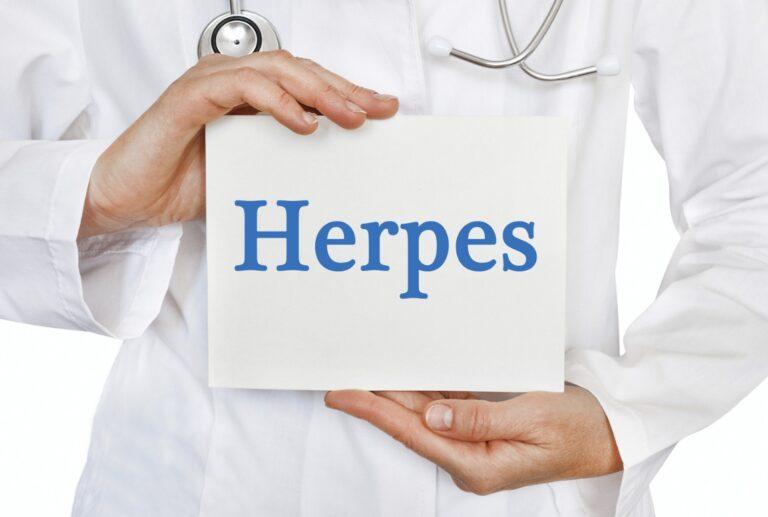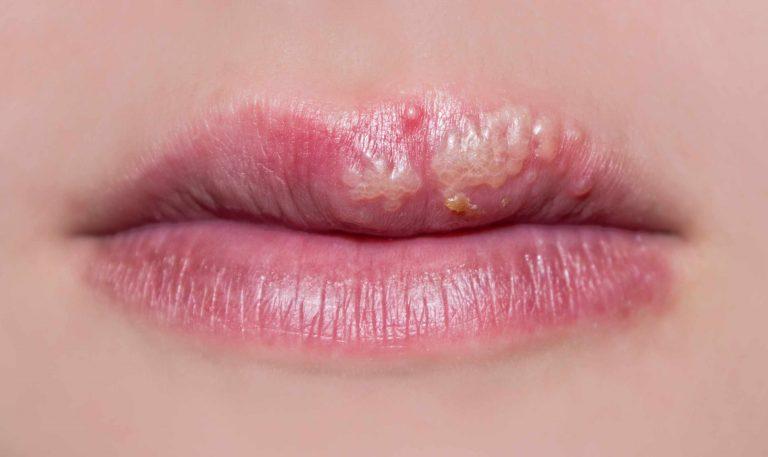But what are they? Are they the same thing? How common are they? And what should you do if you think you have either?
Here we’ve got your need-to-know.
What is HPV?
HPV stands for human papillomavirus. There’s a big family of papillomaviruses and at least 170 of them infect us, we call these ones human papillomaviruses (HPVs). HPVs infect your skin and mucous membranes. This is the tissue that lines your body openings, like your mouth, genitals and anus.
Different strains of these viruses infect different areas of skin on your body. HPV type 1 infects the soles of your feet, HPV type 2 infects the skin on your hands. But when most people talk about HPV they’re talking about those that infect your genitals and cause warts.
Often if you have an HPV infection you wouldn’t notice any symptoms, but with some you definitely can. Genital warts. These warts can appear on your genitals, thighs and anus. Sometimes you even get them around your mouth as well as inside your mouth.
What is herpes?
Herpes viruses are also a family of viruses, some of which can infect humans. Like HPV, they also infect your skin and mucous membranes.
Also, like HPV, different strains of the herpes virus usually infect the skin on different parts of your body. With HSV-1 you would normally get an infection around your mouth as cold sores, while HSV-2 usually infects the skin in and around your genitals and your anus.
HSV-2 infections (and sometimes HSV-1 infections) can cause a condition called genital herpes. This is when you get outbreaks of blisters and sores on the skin around your genitals, anus and sometimes across your buttocks.
What is the difference between HPV and herpes?
Is HPV the same as herpes? Both conditions are caused by viruses that infect your skin. Both conditions can also cause skin blemishes around your genitals and anus. So, are they just different names for the same condition?
No. Some websites may tell you this, but they’re wrong. Genital warts and genital herpes are caused by completely different viruses. The conditions have some big differences. We’ll explain:
Genital warts don’t look the same as genital herpes
Genital warts caused by some HPV infections look like raised bumps that can be the same color as your skin or slightly lighter or darker. They can be flat or have a bumpy texture, a bit like the head of cauliflower. Warts usually won’t disappear over time, but they can be removed with a simple surgical procedure or by using prescription creams.
Although genital herpes blisters and sores can erupt in the same place as genital warts, they look different. They start as small bumps, but they grow into blisters that contain fluid. The blisters usually burst (forming a sore) and leak the fluid, causing a hard crust to grow over the infected skin. Herpes blisters and sores will clear up usually within two weeks, but they can come back. You’ve probably heard that herpes infections stay with you for life. This is true.
Some other symptoms are similar, but some are different
Most HPV infections cause no symptoms, and most people who are infected never realize they have a HPV virus. The same is also true for herpes, as you might never have any symptoms.
When symptoms do occur and an HPV virus causes genital warts, it can also cause itching and pain in the infected skin. This is the same as genital herpes. However, genital herpes can cause other symptoms such as burning and pain when you urinate and flu-like symptoms. HPV infections don’t cause these.
HPV can cause Cancer
You may have heard that HPV can cause cancer. Unfortunately, this is the case. Some HPV types (usually ones that don’t cause warts) can increase your risk of developing cancers in your penis, vagina, cervix, anus, mouth, tongue, throat and tonsils.
The herpes viruses that cause cold sores and genital herpes, HSV-1 and HSV-2 aren’t thought to cause cancer. It’s been said that HSV-2 causes cervical cancer, but there’s no evidence of this and women with HSV-2 infection aren’t at a greater risk of cancer.
Herpes is forever
Another important difference between HPV and herpes is that herpes viruses stay with you forever. Once a herpes virus infects you, it makes its way into the nerve cells in the skin, where your immune system can’t fight it or do anything about it. Usually the virus lies dormant, but every now and again it reactivates and gives you symptoms.
Can you get rid of hpv once you have it?
HPV is different. Most HPV infections are cleared by your immune systems within two years. Some infections can last longer, particularly if your immune system is compromised, but HPV is usually overcome by your body, whereas herpes can’t be.
Both HPV and herpes can be stis
HPV and herpes infections might be different, but they are both caught in the same way. Usually through sex.
You catch HPV and herpes from skin-to-skin contact with someone who is infected, or by coming into contact with their body fluids, such as their saliva. This happens most often through sexual contact, which is why HPV and herpes are classed as sexually transmitted infections (STIs).
The best way to avoid catching either infection is to have safe sex by using a condom and an oral dam. Now, this is the really important bit. Don’t have sex (even safe sex) with someone who has visible warts or herpes blisters and sores. This is because the virus may be on their skin in areas a condom won’t cover.
What do you do if you think you have genital warts or genital herpes?
If you think you have genital herpes it’s important to get tested. The easiest way to do this is to head to a sexual health clinic when you have an outbreak of blisters and sores. A nurse will be able to look at them to make sure that’s what they are – they’ll also take a sample that can be tested for the presence of a herpes virus.
As we’ve already mentioned, genital herpes can’t be cured. What you can do is take prescription medications including valacyclovir and Valtrex to help clear-up outbreaks and prevent them from happening in the first place.
There’s no standard test for men for HPV but you should go to a sexual health clinic or your doctor if you have warts to get them diagnosed. Your warts can be treated with prescription medication or surgically removed with a scalpel, laser, chemical treatment or even by freezing, burning or vaporizing.
Summary – what are the similarities and differences between HPV and herpes?
| Genital warts (HPV) | Genital herpes | |
| Cause | • An infection of a human papillomavirus | • An infection of a herpes simplex virus |
| Symptoms | • Often no symptoms at all • Warts on your skin • Itching and pain • HPV can cause some cancers | • Often no symptoms at all • Blisters and sores on your skin • Itching and pain • Pain when you urinate • Flu-like symptoms • Herpes does not cause cancer |
| How do you catch it? | • From skin-to-skin contact with someone who has the virus, often through sex | • From skin-to-skin contact with someone who has the virus, often through sex |
| How long does it last? | • The infection is usually cleared by your immune system, often in two years | • You have the infection for life |
| Test | • An HPV test for women during a smear/Pap test • No standard test for men • A physical examination of your warts | • A physical examination of your blisters and sores • A swab sample can be taken to test for the virus |
| Treatment | • No treatment for the actual virus • Warts can be treated with prescription creams or can be removed | • No treatment for the actual virus • Outbreaks can be treated and controlled with over the counter and prescription medications, including valacyclovir and Valtrex |
| Prevention | • Practicing safe sex • Avoiding sexual contact with someone who has visible warts | • Practicing safe sex • Avoiding sexual contact with someone who has visible blisters or sores |








